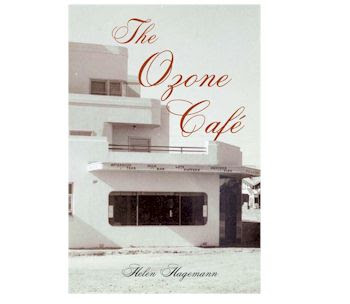Books Shipped in 2 Business Days.
REGULAR PRICES: Below if you use your Paypal account Email Within 24 Hours.
Poem from of Arc & Shadow
Admirabilis - (collation of home)
The purpose of the poem, fills the room
i
We enter
small rooms, cherished from the past,
each one
telling a tale of my parents’ life.
Now they are
gone, we need to unravel
what is
left ─people in a marriage ─
the things
they kept. We threw Dad in the lake because
he loved to
fish. Mother's in a narrow corridor
of sorts,
& cannot escape ─
the world
going on without her.
We still see
the light in her eyes
after the
stroke.
Houses are
history with clutter & song,
the old
place creaking as we walk. You can almost
hear the
tank overflowing, gutters pinging,
high-heels
on concrete, neighbours sneaking round
the corner
in a flap from the rain. Betty who loved Jesus.
Rene, an
adorable hypochondriac, who got sicker
when the new
doctor came.
ii
It’s
delicate to pack fifty years of chattels: flowerpots,
fernery
orchids, a shed full of tackle & tools.
If you touch
something, you’re spirited back
to bikes on
the lawn, cartwheels, winging the clothes line,
the family
snake killer whacking the long grass
for the
dog’s last chewed ball.
You’re a
teenager, slipping into your mother’s room,
the dressing
table's batwings coupling tiny bottles of scent,
glass top in
a dust of fingerprints, old powder cracked
in her
cut-glass like dried veins in a river bed.
Her silver
brush & comb, an ensemble
she kept for
forty years, clips & pins in a silver dish,
three
drawers as wayward as your first perm.
iii
The kitchen,
still in weathered wood, throws out
more wonder.
The retro cup & saucers in ear-shaped
handles.
There’s a Willow set, tea-pots in orange, yellow, green,
matching
bowls & jugs. Gifts on their wedding anniversary,
trophies
from a pennant’s match, the sideboard hiding more
than its
sixties storage. Ramekins, a cutlery set, tea-towels never used,
tablecloths
& boxed cotton sheets. Your mother could combust
the golf
club with the winning ticket in her hand.
You walk the
halls, the verandah, open each wardrobe.
Coats still
hang behind the door. You press your nose into your mother’s
cream
cashmere, scent of rose. This is a longing for touch,
to hold the
smell of your father’s pressed shirts, singlets,
ties,
mother’s scarves & gloves, those young lives you never knew.
If you could
tell them now about this poem, read their song,
they still
wouldn’t understand. They’d avert their eyes
from your
arrangement of words, give a little wave
as if you
were touched by the sun.













































